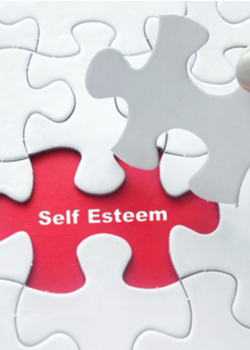
When Veronica tried to quit drinking after 7 years, she had a crisis of self-confidence — one of the most common challenges in recovery.
In fact, her self-confidence is one of the things that kept her drinking for so long. She always felt more empowered after a few glasses of wine, and she liked that version of herself.
The problems came when just a few weren’t enough anymore. And on the other side of those drinks, she would wake up feeling increasingly worse, her life spiraling increasingly out of control.
Now finally facing recovery, she didn’t know how to do it without her old trick. Alcohol had always supplied her self-assurance. How would she do something as hard as quitting without it?
Self-Doubt and Potential Challenges in Recovery
 Everyone experiences self-doubt at some point in their life. It’s that unhelpful little voice that whispers “You can’t do it,” or any number of other taunting, mean, and untrue ideas. And while this naysaying attitude is unhelpful for everyone, it can be especially hurtful for someone in recovery.
Everyone experiences self-doubt at some point in their life. It’s that unhelpful little voice that whispers “You can’t do it,” or any number of other taunting, mean, and untrue ideas. And while this naysaying attitude is unhelpful for everyone, it can be especially hurtful for someone in recovery.
Choosing to stay away from drugs, alcohol, and other vices is a difficult decision and one that must be made every day in recovery. Inviting self-doubt into that equation can make this daily pledge more difficult to take.
When moving on from substance use, many people must make major changes: Staying away from old friends and old haunts; developing new hobbies; changing jobs or even locations. These triggers all poise as challenges in recovery.
These types of major lifestyle shifts are hard enough to achieve on their own. They essentially add up to embracing a whole new version of oneself. And while this process can be healthy and empowering, it can also feel terrifying or even disingenuous at first. Many people may want to seek comfort in old vices.
Recovery is also often painted in black and white: You’re sober or you’re not. This type of all-or-nothing attitude can actually present challenges in recovery, which is a long, incremental process, often coming with several twists, turns, and possibly even setbacks.
The pressure to stay perfect in an inherently imperfect world, especially while taking on such a difficult challenge, can feel impossible to live up to, leading a person to question themselves and where they are on their recovery journey.
Self-Doubt, Self-Esteem, and Recovery
Self-doubt and self-esteem are closely linked.
Psychologically, self-esteem is considered the total of your sense of belonging, self-confidence, feeling of security, feeling of competence, and identity. It starts at low levels in childhood and typically develops throughout one’s life.
But gendering high self-esteem — or a feeling of appreciating and liking yourself, regardless of the circumstances — can have several positive outcomes. Among other benefits, it can help someone understand and express their needs, maintain healthy relationships, and maintain appropriate and realistic expectations, of themselves and others.
On the other hand, low self-esteem can have a detrimental impact on your emotional health, relationships, motivation, and overall well-being. Low self-esteem is considered a key component in the development of addiction, making it one of the hardest challenges in recovery.
And while self-esteem is often considered a relatively stable aspect of someone’s personality, there are several methods proven to help grow low self-esteem.
Moving Past Self-Doubt: One of the Hardest Challenges in Recovery
There are so many ways self-doubt can plague a person on their path to recovery. But luckily, there are even more ways to instill self-confidence in your life.
1. Set Goals
Goals are a great motivational tool that can help shift your mindset to longer-term desires, making it feel easier — or at least more worthwhile — to get through unpleasant or difficult instances that may come up.
Having goals can also work on a shorter-term basis. Once you envision where you want to be, you can map out how you want to get there. Creating daily or weekly to-do lists to keep up with your progress can help you feel grounded, more in control, and more confident in where you’re going.
2. Take It One Day at a Time
This tip is especially useful for anyone struggling with the need to feel “perfect.”
Unfortunately, there is no such thing. Mistakes are inevitable and happen to everyone. The purpose of taking things day by day is to help keep that concept in perspective.
All you can do is try your best, every day. If something does come up that’s less-than-ideal, you can always try again tomorrow. This type of outlook can help stop a slip-up from sliding out of control. Remember, every day spent on the road to recovery is one more day than you had before.
3. Build a Support System
Support systems are a fundamental part of sustained sobriety. A peer network can empathize with the common challenges in recovery. No person is an island. Having people with whom to share your fears (and successes!) can help reinforce the importance of your journey.
Finding the right kind of people to keep around you is key, however. Make sure your support system is made up of friends and family who recognize your worth, have your best intentions at heart, and want you to succeed. These types of supporters will help build you up and hold you, even through periods of self-doubt.
4. Face Your Fears
Fear is often at the heart of doubt. And when it comes to recovery, a fear of failure can often have an overpowering effect. But looking plainly at these fears can help diminish their power over you.
You can start by making a list, of all the reasons you don’t think you can succeed. Then, make a list of all the reasons you think you can. A visual representation will not only help you understand the types of thoughts you’re having, but keep track of any doubts, and work on eliminating them.
5. List Your Strengths and Weaknesses
Similarly, listing your greatest strengths and weaknesses can help you confront ideas of self-doubt.
These can be broad-ranging, and no area is too small for self-worth. (Even if it’s just, “I brush my teeth every day,” that can show commitment to a healthy routine.)
In times of self-doubt, it may feel easier to create your list of weaknesses. Cap it at 10, and make yourself come up with at least 10 strengths. This can help you understand that you’re not all bad, that you do have value, and give you an idea of areas that you may also want to work on.
6. Exercise Regularly
Mental health and physical health often go hand-in-hand.
Several studies have linked the two concepts, including a connection between aerobic exercise and higher self-esteem. Among its many confidence-boosting benefits, moving our bodies helps familiarize us with what they can do and build on what they’re capable of, which helps foster a sense of security and competence.
And it doesn’t take much. In fact, studies have found that just five minutes a day of outdoor activity can significantly impact mental health.
7. Think Positively
 The final step is perhaps the most important and effective way to banish self-doubt.
The final step is perhaps the most important and effective way to banish self-doubt.
Thinking positively — about ourselves and life in general — has numerous major benefits, including helping to build and sustain self-esteem.
One way to stay positive is by practicing daily affirmations. These are words, phrases, or mantras that you tell yourself each day. It can be something like, “I am worthy,” or “I am capable.”
It may feel uncomfortable at first, but this type of work has been proven to elevate levels of happiness, confidence, and self-esteem. Try just speaking the words out loud each day. Or better yet, tell yourself these affirmations while looking in the mirror.
Recovery is often a long, challenging road, and it’s important to be gentle and forgiving on this difficult journey. Embrace yourself, just as you are, in this moment. You may not be where you want to be yet, but you’re one day, one moment, or one step closer — and that is something worth celebrating. Each time you overcome one of the challenges in recovery, it’s always worth celebrating.
If you find yourself struggling with creeping thoughts of self-doubt or harmful or unhelpful self-talk in recovery, you’re not alone. But help is available.
If you or someone you love is experiencing a substance use disorder, help is available, call
800-681-1058
(Sponsored)
.
Photos courtesy of Shutterstock.

